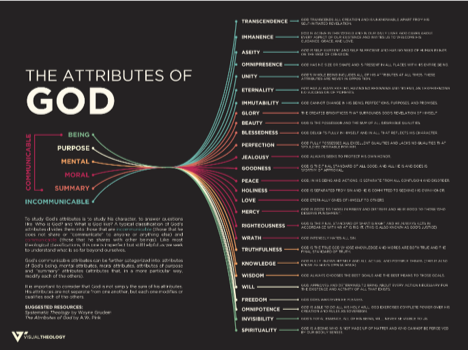Sacred Wounds or Meaningless Suffering
The Epicurean paradox states
If God is omnipotent, omniscient and wholly good, whence evil?
If God wills to prevent evil but cannot, then He is not omnipotent.
If He can prevent evil but does not, then he is not good. In either case he is not God. 
Update Epicurus’ language a little and we have the commonly stated reason why Christians are deserting their faith. They say, “I prayed to God to alleviate the suffering and He was nowhere around,” “I cannot believe in a God who allows this kind of disaster to take innocent lives,” or “Why would God create, only to destroy?” Christianity is being rejected because its adherents can not reconcile suffering and God’s nature. This is especially problematic as our culture’s meaning and purpose in life is increasingly linked to happiness.
Is there a role that we can take as transformational educators to prepare our students with a theology of suffering that would not only prevent their apostacy, but to help them grow and experience God’s presence because of suffering? Knowing that this is one of the main reasons people reject Christianity could we be more intentional in how we prepare our learners for suffering? A comprehensive response would certainly take volumes more space than we have here. However, here are some exercises to get the conversation started:
Exercise 1:
Please read the scripture below (1) with the purpose of drawing conclusions about prayer.
Matthew 7:7-8 “Ask, and it will be given to you; seek, and you will find; knock, and it will be opened to you. For everyone who asks receives, and he who seeks finds, and to him who knocks it will be opened.”
1 Kings 3:5 “In Gibeon the LORD appeared to Solomon in a dream at night; and God said, ‘Ask what you wish me to give you.’”
Psalm 91:15 “He will call upon Me, and I will answer him; I will be with him in trouble; I will rescue him and honor him.”
John 14:14 “If you ask Me anything in My name, I will do it.”
John 15:7 “If you abide in Me, and My words abide in you, ask whatever you wish, and it will be done for you.”
Matthew 21:22 “And all things you ask in prayer, believing, you will receive.”
When looked at together like this, these verses seem to suggest that if we ask God for something, He will give it to us. I call this the Cosmic Sugar Daddy view of God. Often—even if unintentionally—we present this view to our students. Even our textbooks sometimes seem to shore up this view, possibly by citing some of these scriptures.
So, if we pray for someone to be cured from cancer, then God will do it? Do your students believe this? What happens to the Christian who has not considered the whole counsel of scripture and finds that the loved one they prayed for died? Do our students know that other scripture gives a much different view of asking God? Paul asked three times for his “thorn in the flesh” (3) to be taken away, and it didn’t happen. Jesus asked for “this cup to be removed” (4) when he was in the garden, and yet He was still crucified. Thank God He did not respond to all prayer as requested!
There is much our students need to understand about suffering and God’s character. Are we preparing them for their dark moments as well as those moments when they are “offering comfort to those in any trouble with the comfort we ourselves have received from God ” (4)?
Exercise 2:
 Accept the challenge to join colleagues in thinking hard, discussing often, and praying fervently about this all too common stumbling block around suffering. How can we prepare our students with a theology of suffering that equips them to stand firm in the faith even when faced by “trials and tribulations of many kinds ” (5)? How can we facilitate discussions surrounding prayer that avoid the “Cosmic Sugar Daddy” trap? What messages are our lives sending to our students—both explicitly and tacitly—about suffering and disappointed expectations?
Accept the challenge to join colleagues in thinking hard, discussing often, and praying fervently about this all too common stumbling block around suffering. How can we prepare our students with a theology of suffering that equips them to stand firm in the faith even when faced by “trials and tribulations of many kinds ” (5)? How can we facilitate discussions surrounding prayer that avoid the “Cosmic Sugar Daddy” trap? What messages are our lives sending to our students—both explicitly and tacitly—about suffering and disappointed expectations?
We cannot say enough about the importance of creating Christian communities of practice and speaking into one another’s work as transformational educators. How about tackling it at your next staff meeting?
Helen Vaughan, Ph.D.
TeachBeyond
Senior Consultant for Transformational Education
Photo Credits: emergency vehicles. juanemergencias Flickr via Compfight cc. Pieta. Lawrence OP Flickr via Compfight cc.
(1) all scripture quoted from the New International Version
(2) 2 Cor. 12:8
(3) Luke 22:42
(4) 2 Corinthians 1:3-4
(5) James 1:2





